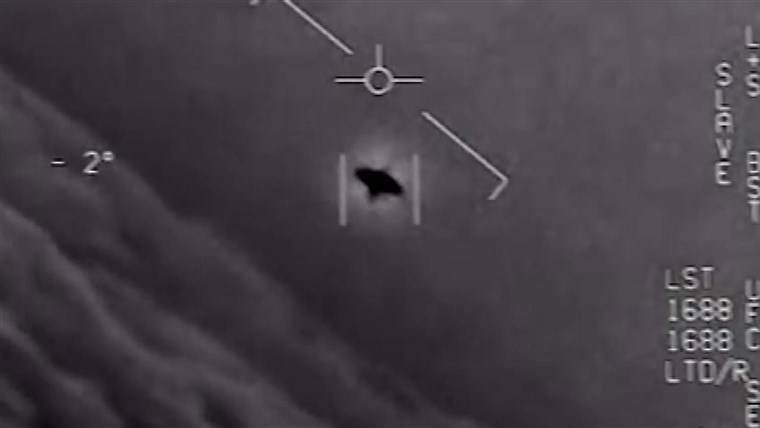13% of academics who responded to a research team’s survey say they believe that unidentified aerial phenomena (UAP) could represent “devices of unknown intelligence.” 19% of those same respondents say they or someone they know has witnessed a UAP, while a further 37% revealed an interest in conducting further research into UAP.
Notably, 96% of the academics who were sent the survey didn’t reply at all, indicating a potential bias against the topic in general, as well as a potential bias toward interest in the subject by those who did reply. However, the generally favorable results from those who did reply may indicate that the stigma around researching UAP from an academic perspective may finally be lifting, at least to some degree.
Nearly 40,000 Professors Surveyed on Experience and Interest in UAPs
The team of researchers behind the survey, Marissa Yingling and Charlton “Chaz” Yingling from the University of Louisville, and Bethany Bell from the University of Charlottesville, Virginia, say they were hoping to gauge exposure to the UAP subject, as well as any potential desire to study it, among their fellow academics.
According to a press release announcing the team’s research, their questions mainly focused on their fellow academic’s “perceptions of, experiences with, and opinions of UAP.”
“We were driven to conceive of this study by our own curiosity, absence of data, and minimal mention of recent reports, legislation, and scholarship on this subject in our own academic circles,” the Yinglings told The Debrief in an email. “We wanted to know faculty opinions. It is that simple. We were interested in the thoughts of university faculty – our peers – because they hold responsibility for generating knowledge and evaluating truth claims”
As noted, only a small percentage of their fellow academicians bothered to respond to the survey. Still, according to the three researchers behind the somewhat unprecedented effort, those who did respond offer a glimpse into the potentially shifting attitudes of academic professionals toward a traditionally controversial and divisive topic.
Many Respondents feared they were being scammed by survey email
To conduct the survey, the trio selected 39,984 professors, associate professors, and assistant professors from 144 universities across a range of 14 different academic disciplines as their survey subjects. All were sent the survey, with slightly less than 4% (1,460) responding.
While conceding that “the response rate is somewhat lower than we anticipated,” the researchers told The Debrief, “As we explore in the study, stigma may have deterred more faculty from taking this topic seriously.”
The researchers also say they suspect this low response rate could be based on several additional factors, including “(1) another chaotic semester due to the COVID-19 pandemic in which many faculty were still overwhelmed and may have had less time or energy to complete the survey; (2) faculty concerns that the recruitment emails were spam or “phishing emails”; and (3) the overall “taboo” nature of the study focus.”
Still, they note that the large sample size of respondents to this study is a strength, as “recent surveys among faculty at institutions of higher education have included sample sizes in the United States that ranged between 113 and 329.” So, receiving responses from nearly 1,500 of their colleagues was still seen as highly valuable even though the percentage may have been a bit lower than expected.
The researchers also told The Debrief that many of the responses from their colleagues seemed to reinforce the stigma around the topic. As they wrote in the actual study, “This topic inspired a vast range of emotional reactions, from anger and irritation to surprise, delight, and enthusiasm.”
Some other noteworthy comments from those surveyed include:
“The stigma around the topic is so great that I thought your initial invitation to participate in the survey was spam!” one respondent wrote.
“Interestingly, I overlooked taking your survey a few times when I saw it in my inbox bc it seemed potentially disreputable given the topic,” another replied. “But I am stuck on a train and figured why not. I’m so glad I did. Assuming the various articles and documents shown in the survey were not fabricated for experimental survey purposes, I am excited about investigating the research on this topic.”
“Tenure might be tricky for you-good luck,” a third respondent warned.
“The censorship of this topic is ridiculous,” wrote a more passionate respondent. “The stigma surrounding the topic is negative and even more in academia.”
Based on feedback provided by faculty who took the time to communicate with them, the researchers say they speculate that there are likely “many more faculty who simply deleted the emails assuming the study was not real.”
Curiosity in UAP by Academics Increases when Researched by Respected Colleagues
A more detailed analysis of the researchers who did respond, which is reported in the scientific journal Humanities and Social Sciences Communications, did reveal some interesting findings.
For example, those who responded to the survey were largely male (62%) and overwhelmingly white (80%). Also, of the 14 disciplines represented, the researchers report that 10% of respondents worked in political science, 10% worked in physics, 10% in psychology, and 6% in engineering.
As for the actual survey results, 19% of the respondents (276 total) said that either they or someone they know has had a sighting of a UAP. Another 9% (128) say that they or someone they know may have witnessed a UAP.
Some other interesting results from the survey are:
- 39% of respondents say they did not know what the most likely explanation for UAP was
- 21% attributed reports of UAP to natural events
- 13% attributed UAPs to “devices of unknown intelligence”
- 4% reported they had actually conducted some research into UAP
- 36% reported some interest in studying UAP
- 43% reported they’d be more likely to study UAP if a “reputable scholar in their discipline” did so
- 55% reported they would be more likely to research UAP if they were able to secure funding
- 37% of respondents rated further research into UAP as “very important or absolutely essential”
- 64% said academia’s involvement in any UAP research was “very important or absolutely essential
Along with the academics who said they did not know what the most likely explanation was for UAP, attributed them to natural events, or even offered the concept of devices of unknown intelligence, some of the most thought-provoking replies by respondents appear in the “other” section where they are asked for the most likely explanation for UAP.
Specifically, among those who selected “Other” (n = 165), 10 replied “All.” Many others suggested a combination of explanations: 45 wrote “combination,” 31 wrote “combination” with the explicit exclusion of an unknown intelligence (n = 29) or extraterrestrial intelligence (n = 2), six replied “combination” and conveyed openness to unknown intelligence, two wrote “combination” and specifically included unknown intelligence.
Other responses recorded by the researchers include “human error, technical limitations, foreign and/or domestic military or secret United States technology, “interdimensional travel,” perception, myth, “cultural predilection,” “extra-dimensional phenomena with paranormal manifestations,” “known intelligence of a metaphysical nature,” optical phenomena, “limits of human knowledge,” weather balloons, “cognitive constraints from an evolutionarily evolved human brain that is dealing with stimuli outside of experience,” mental illness, drug use, “unknown terrestrial beings,” and “time.”
Interest in UAP by Academics May Be Increasing, but More Research is Needed
It is immediately notable that such a high number of the academics who took the time to respond to the survey rated the involvement of academics in the study of UAPs as either very important or absolutely essential and that their interest in studying the topic would increase if respectable researchers from their own discipline engaged in such research.
“The findings suggest that many US academics across disciplines consider academia’s involvement in research into UAP to be important and may be cautiously willing to engage with research into UAP,” the researchers told The Debrief, “particularly if others they consider to be reputable within their field do so.”
The researchers also caution that if academics do not engage in the topic, those who take a less scientific approach will undoubtedly fill in the public knowledge gap.
“Whatever the aetiology, what is the cost of self-censorship?” they ask. “To whom do scholars cede the topic by not engaging?”
In their conclusion, the study authors wrote that their findings indicate open discussions of UAP among academics “could enable greater academic involvement in UAP-related research.” However, they also caution that more surveys involving “larger and more diverse cohorts” should be conducted to determine attitudes towards UAP more generally “among academics in the USA.”
“We were motivated to conduct this study because there was no data on this topic among the professoriate,” the researchers told The Debrief. “However, as we discuss in the article, what academia collectively might or might not think regularly appears in conjecture on this topic or in extrapolations from small samples. We simply decided to do the research ourselves. We had no expectations about results. We were only curious to collect findings. Yes, we were surprised by some of the results, including our own experiences with participants while conducting the study.”
Christopher Plain is the Head Science Writer at The Debrief as well as a Science Fiction and Fantasy novelist. Follow and connect with him on Twitter, learn about his books at plainfiction.com, or email him directly at christopher@thedebrief.org.

